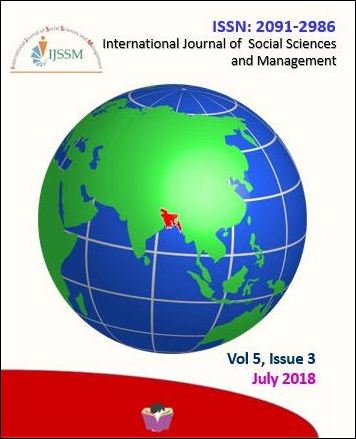Broadcasting Public Service in the Arab World: Rupture and Continuity
DOI:
https://doi.org/10.3126/ijssm.v5i3.20599Keywords:
Regulation, Arab media, Arab spring, public service broadcasting, state television, Arab world, media in democratic transitionAbstract
A large proportion of the media around the world, especially those related to radio and television, belong to the state. In principle at least, there are three different terms to talk about these types of media: (1). The public media that draws on the treasury to present programming that is in the interest of the general population. They do not support any political party, not even the party in power. (2). National media owned by the state and using the treasury money, are also controlled directly by the state. (3). Government media that is owned by the ruling party and uses the treasury money, are also controlled by the ruling party. These three models coexist already in the Arab world since independence. This phenomenon almost removed the clear distinction that existed in principle between the government media and the public media. After the Arab Spring in 2011, however, this distinction remains important. The public broadcaster model was based on a principle that is still justified for most of the world and that the private media alone can not guarantee the pluralism of broadcasting. The problem, however, is that the government media have also largely failed. In several countries, the arrival of private media has pushed governments to exercise editorial control of the public media. The discussion of media regulation is aimed primarily at ensuring that the media financed by the Public treasury exercise their profession with the full independence of the government of the day to which they are entitled, rather than aiming to restrict the freedom of the media that already enjoy full editorial independence. In the Arab world, there have been some attempts to recover and modernize the ideal model of public media, as for example the case of Tunisia, Morocco and Jordan. This study aim to search if the Arab broadcasting meet the recognized standards and the requirements of the concept of public service?
Int. J. Soc. Sc. Manage. Vol. 5, Issue-3: 98-112
Downloads
Downloads
Published
How to Cite
Issue
Section
License
This license enables reusers to distribute, remix, adapt, and build upon the material in any medium or format for noncommercial purposes only, and only so long as attribution is given to the creator.




